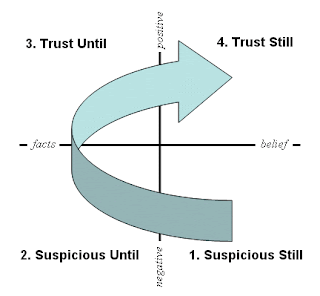GOOGLE’S SELFISH LEDGER is a data silo model
The video is not new and neither is the thinking. The Verge did a write up on this and an update - worth reading. The general response was always about the creepy line - however now seeing clearly that the issue is about where the data is. What I mean by this is that the data is in Google Silo and Google's view is not to find the data from other sources - but to find a way to get the data itself, making a bigger silo. My problem with this is that this very model of one big silo is the one model that will get broken first. As trust is the issue in the big silo model, why does trust become the game changer.... that idea is explored here
